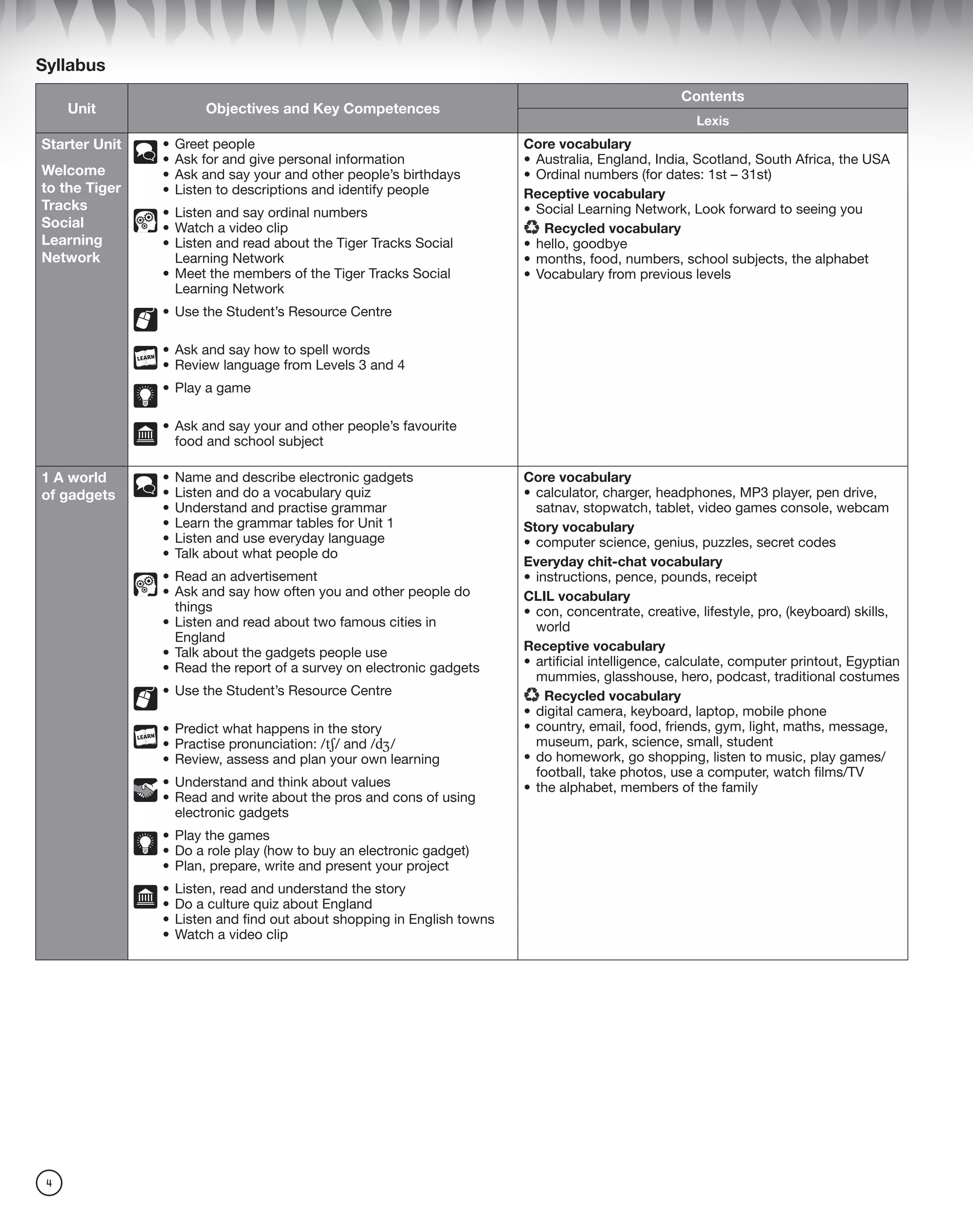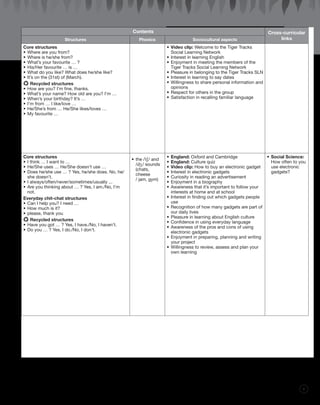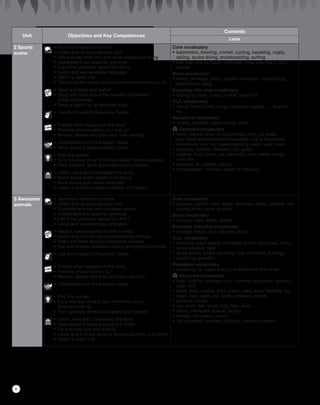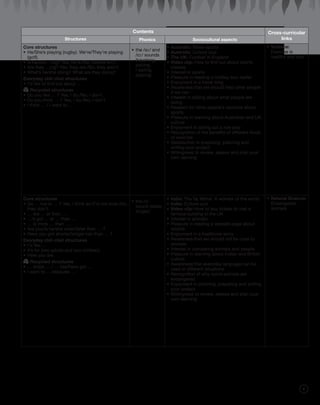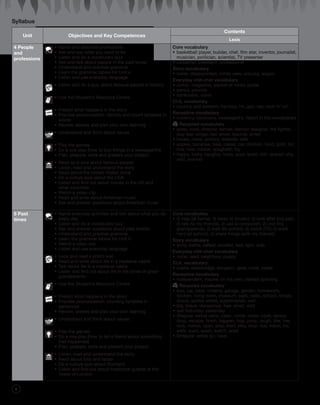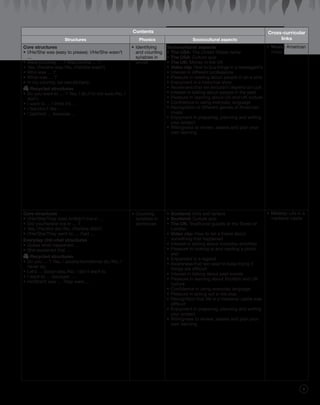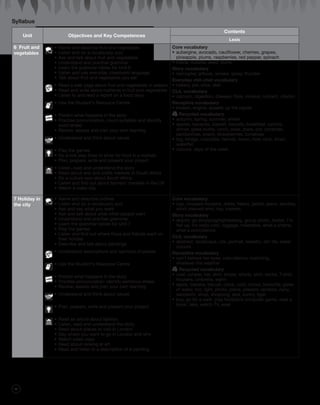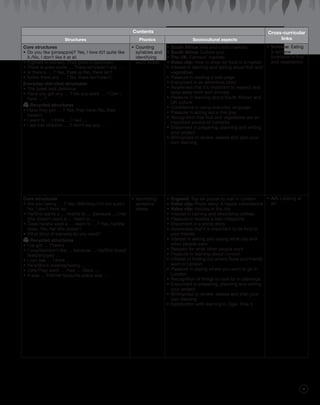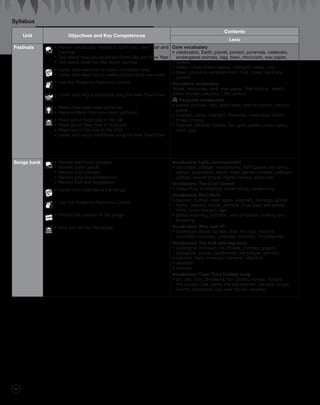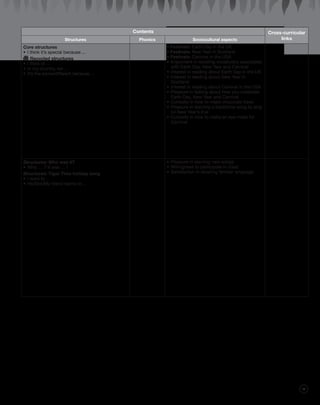This document provides the unit objectives and key competences for three units in an English language textbook. Unit 1 focuses on electronic gadgets, including vocabulary like calculators and tablets. Unit 2 covers sports like badminton and cycling, and Unit 3 introduces animals such as baboons and flamingos. Each unit lists vocabulary, grammar structures, pronunciation practice, stories, videos, projects and quizzes about different countries' cultures. The overarching goals are to improve English skills while learning about technology, exercise, wildlife and social-cultural topics.
